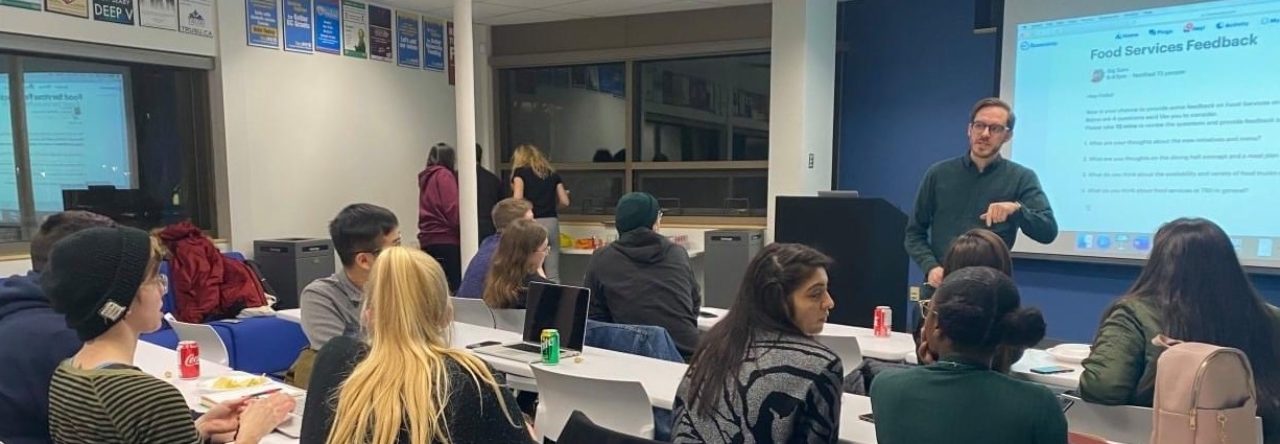On June 24, 2020, I taught, with my teaching partner, my fourth one-hour lesson with a group of four students enrolled in an Advanced Oral Communication class. The objective of this lesson was that students would discuss what constitutes culture, cultural appreciation, and cultural difference. This was to be accomplished through students brainstorming, defining, and explaining vocabulary related to culture; engaging with that vocabulary; thinking critically about hockey as part of Canadian culture; and identifying and discussing differences between Canadian culture and their own. Additionally, students were to be asked to complete a survey to provide feedback on teacher performance and lesson activities over the previous three weeks.
In preparing the lesson plan, we attempted to incorporate feedback from the students that we had gathered in the previous lesson. Specifically, this included a focus on vocabulary and discussion focused on local (Canadian) culture. We planned a series of related activities include a vocabulary brainstorm, vocabulary game, a video, and a focused discussion. The teacher feedback survey was also included. In retrospect, this was too many activities for the available time. In our desire to incorporate previous student feedback as well as the survey suggested in the practicum class, we forgot the benefit of focus we realized in the previous lesson. Our plan also shifted back to requiring a greater contribution from the students themselves for discussion content. This is not necessarily bad, but needed to be thought of in the context of a point raised by our sponsor teacher in the previous week: either the topic or the discussion can be a focus of difficulty, but not both at the same time. We presented challenging discussion activities by being more open-ended, but probably did not reduce the difficulty of the topic to a commensurate degree. Finally, we incorporated one additional area of planning, which was to identify clearly the responsibilities of each teacher throughout the lesson. This was helpful in delivering the lesson more smoothly.
In delivering the lesson, we encountered challenges in not providing enough direction or support for the activities, leading to slow and limited student participation in some cases. For example, in the vocabulary brainstorm, students were not clear what was being asked of them. While the presentation was overly specific, which may have overwhelmed the students, the spoken directions were too abstract. Eventually it became clear and student participated, but it was not as engaging as hoped, particularly for a first activity. It may have helped to have had the students turn on their cameras in order to better gauge their reactions, but most of all we needed to simplify the instructions and provided examples. The teacher feedback survey suffered from the same challenge, and we did not get particularly useful feedback. Only three of four students participated. Again, we should have provided more direct support. This was a bit awkward though, because I was unsure how appropriate it would be to facilitate a survey about my own performance. Perhaps it would be better to have the sponsor teacher lead this activity. The final activity that suffered from weak engagement was the discussion, and this was as a result of two factors. First, like the other activities, our direction was too abstract. Our questions need to be more structured or build from simpler more concrete ideas in order to support participation. Second, we ran out of time as a result of planning too much for the lesson. The remaining activity was a game, which was a positive experience in terms of interest and participation, but was less connected to the lesson objective.
Overall, my fourth lesson was good reminder of keeping a lesson focused and at an appropriate level of challenge to get the most student engagement. Our packed lesson plan and vague directions and prompts meant too much teacher talk and periods of student confusion rather than discussion. While students seemed to enjoy the class and we maintained a good rapport, we did not make the best use of time.


Leave a Reply